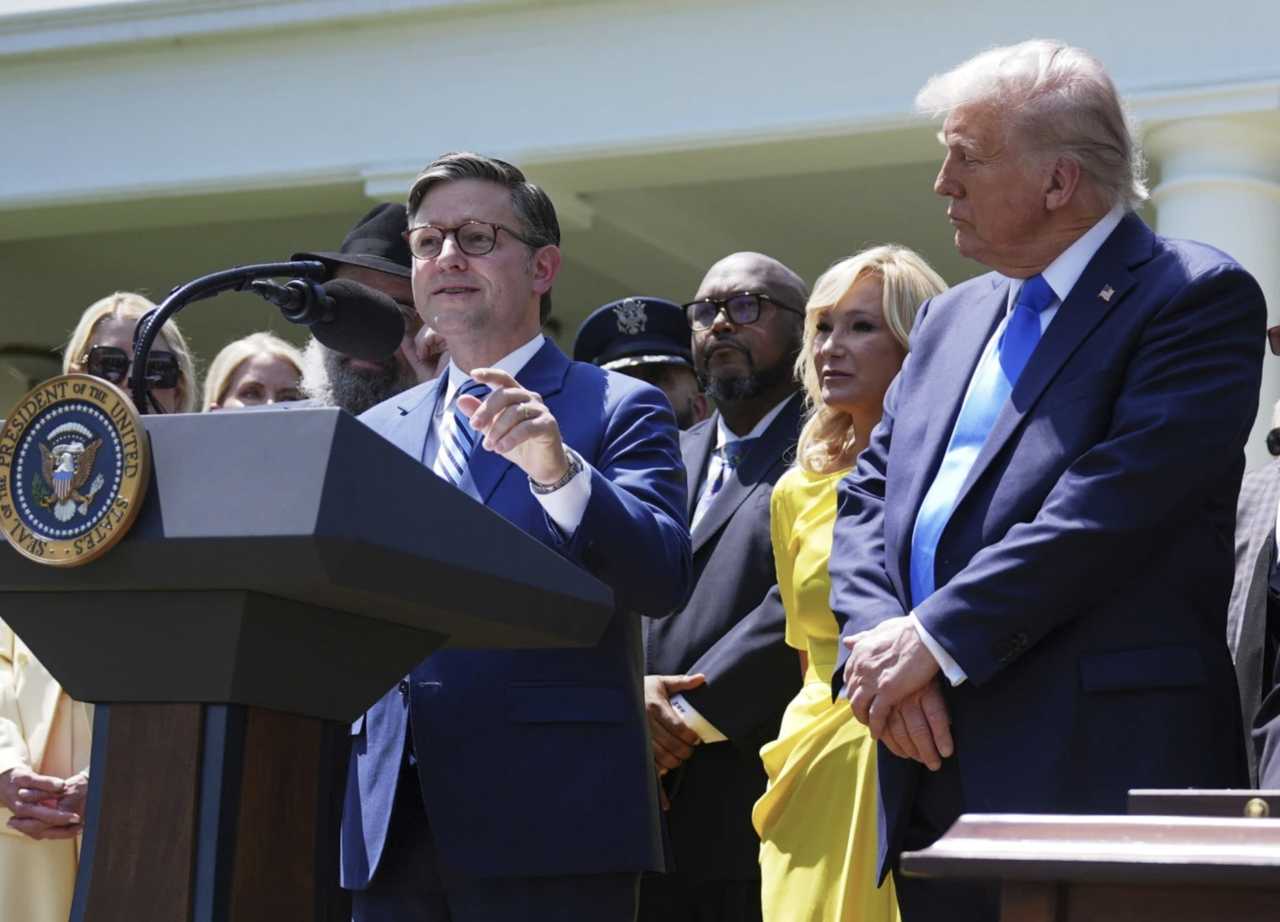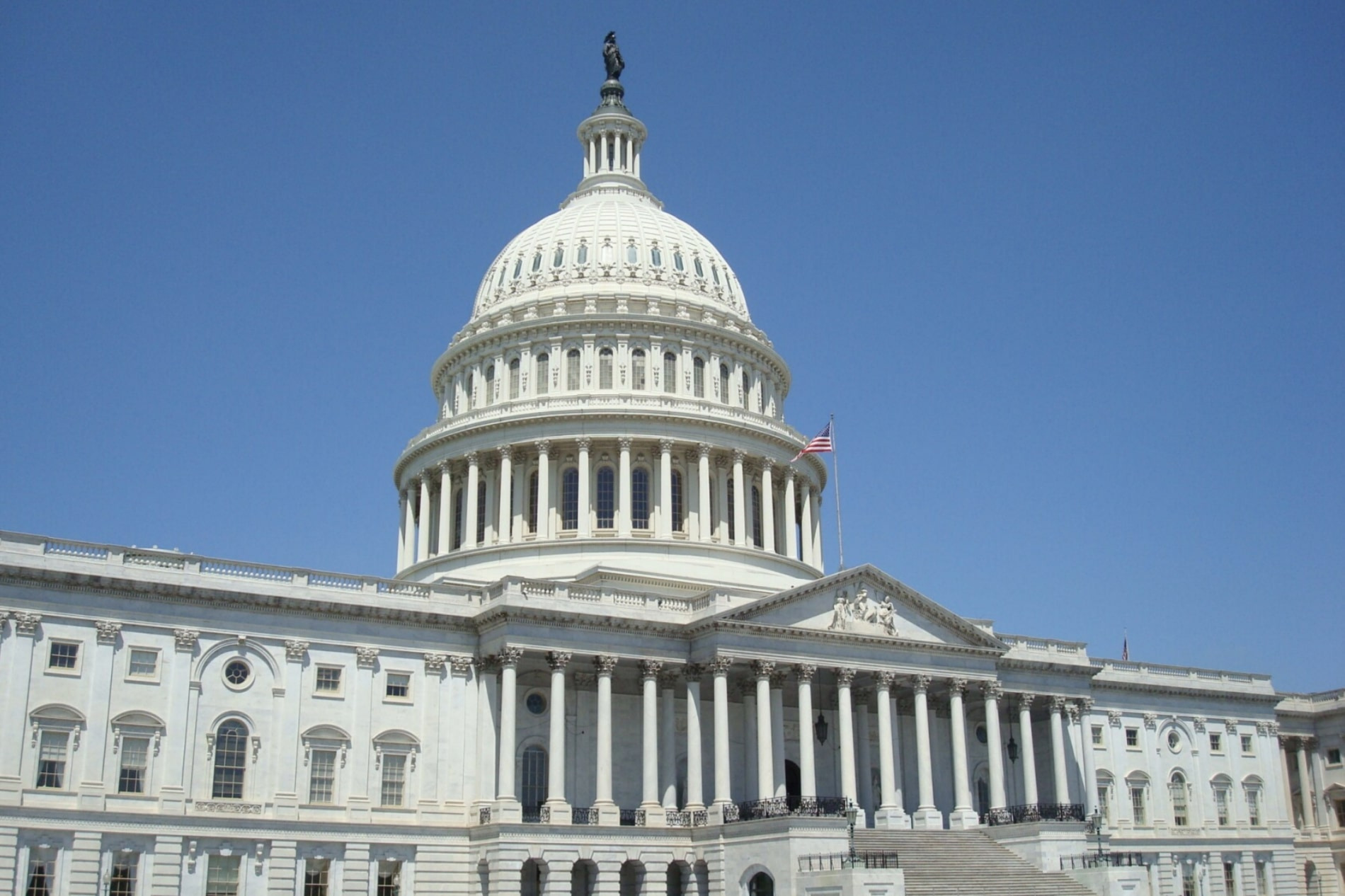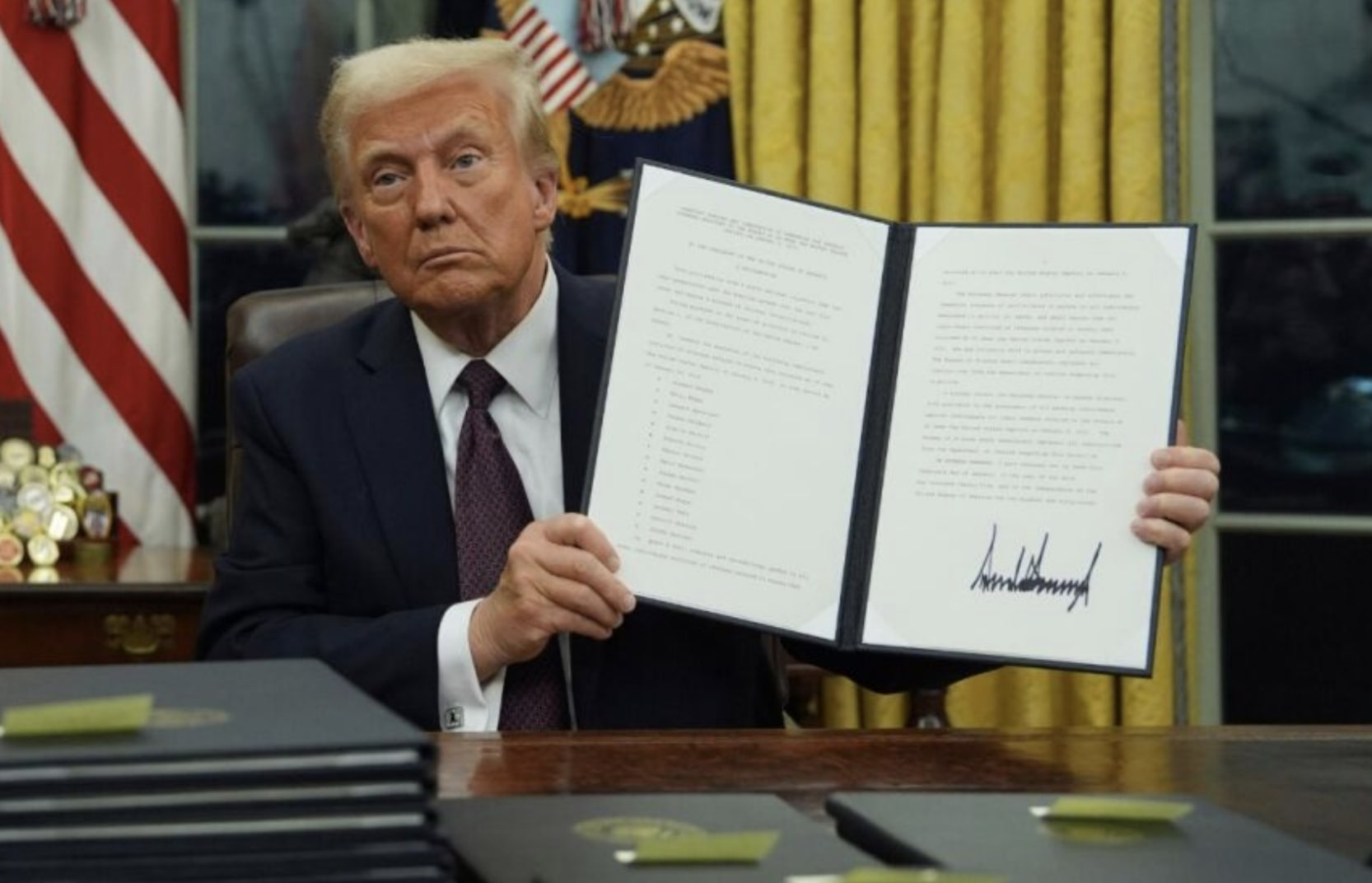President Trump unveiled his 2026 budget plan

Image: Evan Vucci/AP
In a letter to Congress on Friday, the White House outlined a fiscal blueprint for the 2026 budget that would significantly reduce spending on domestic programs while boosting funding towards national security.
- It marks the first budget of Trump’s second term, in which presidents typically define the main goals of the administration alongside their party in Congress.
The budget blueprint
The White House’s fiscal plan aims to reduce discretionary non-defense spending—which excludes programs like Social Security, Medicare, and Medicaid—by $163 billion compared to the current fiscal year, a drop of 22.6%. The plan would bring spending in that area to its lowest level since 2017, according to the White House.
Overall, programs throughout the federal government related to climate change, foreign assistance, and diversity, equity, and inclusion would see cuts. These include the EPA, USAID, National Institutes of Health (NIH), and National Science Foundation (NSF).
Other areas would see spending boosts. Trump’s budget proposal would increase military spending by 13% to a record $1.01 trillion, while appropriations for the Department of Homeland Security—which oversees border security—would increase by ~65% to $107 billion.
- Charter schools would have their funding increased, while Health Secretary RFK Jr.’s “Make America Healthy Again” initiative would receive $500 million.
- Air and rail safety, veterans’ health care, and law enforcement would also see boosted spending.
Both sides of the aisle have voiced concerns. Democratic lawmakers pushed back against Trump’s budget proposal, framing it as an attack on government programs that help working Americans and also ensure the US remains the world leader in innovation and research.
On the flip side, some GOP defense hawks argue Trump’s proposal doesn’t actually boost military spending, since it includes $120 billion that’s part of pending legislation via a separate budget process.
Looking ahead…Presidential budgets almost never survive the congressional appropriations process fully intact, but serve to shape debates on Capitol Hill about the coming fiscal year.
Flash poll: In general, do you support or oppose President Trump’s budget proposal for the 2026 fiscal year?
See a 360° view of what pundits are saying →

Sprinkles from the Left
- Some commentators argue that in order to approve their budget, the GOP will have to drastically cut other parts of the federal budget—notably Social Security, Medicare, and Medicaid, which would affect health care and the economy across America.
- Others contend that Trump and Republicans are right to identify that current government spending is completely unsustainable—and while efforts like DOGE are haphazard, sloppy, and create lasting harm, they also serve to expose the need for spending changes on Capitol Hill.
- “Where Congress goes next on the budget will matter to you and the whole country” –Former Rep. Lee Hamilton (D-IN)
- “DOGE’s Damage Makes Way for Serious Government Reform” –Bloomberg Editorial Board
- “Death by a Thousand Federal Cuts: Trump Administration Actions Will Not Make America Healthy Again” –Paula M. Lantz, The Milbank Quarterly

Sprinkles from the Right
- Some commentators argue that Trump’s budget is a great first step towards reducing the vast amounts of federal spending waste that exist—but it doesn’t go far enough, and cutting efforts should eventually extend to mandatory spending like Medicaid, ObamaCare subsidies, food stamps, and other “income security” payments.
- Others contend that Trump’s bold plan will cut off special interests who’ve fed too long from the public purse, get the government off the back of the productive private sector, and reverse the long decline of the nation’s defenses.
- “A Not So Radical Trump Budget” –WSJ Editorial Board
- “Trump’s ‘big, beautiful’ budget plan delivers for America” –NY Post Editorial Board
- “The White House’s Next Orchestrated Budget Crisis” –Josh Marshall, TalkingPoints
Share this!
Recent Discussion stories

Discussion
| May 2, 2025Nvidia and Anthropic tussle over US chip export controls
🤖 Mom, the AI giants are fighting again. Nvidia and Anthropic this week clashed over US export controls related to artificial intelligence chips, with each finding themselves at the opposite end of the spectrum.

Discussion
| April 30, 2025The GOP unveils plan for higher-education reform
🏛️ This week, House Republicans officially proposed a series of wide-ranging higher education reforms as part of a wider legislative package aimed at carrying out President Trump’s agenda.

Discussion
| April 28, 2025Breaking down Trump’s first 100 days in office
🏛️ Tomorrow marks 100 days since President Trump assumed office for his second term—a traditional early milestone for measuring progress in each presidency.
You've made it this far...
Let's make our relationship official, no 💍 or elaborate proposal required. Learn and stay entertained, for free.👇
All of our news is 100% free and you can unsubscribe anytime; the quiz takes ~10 seconds to complete